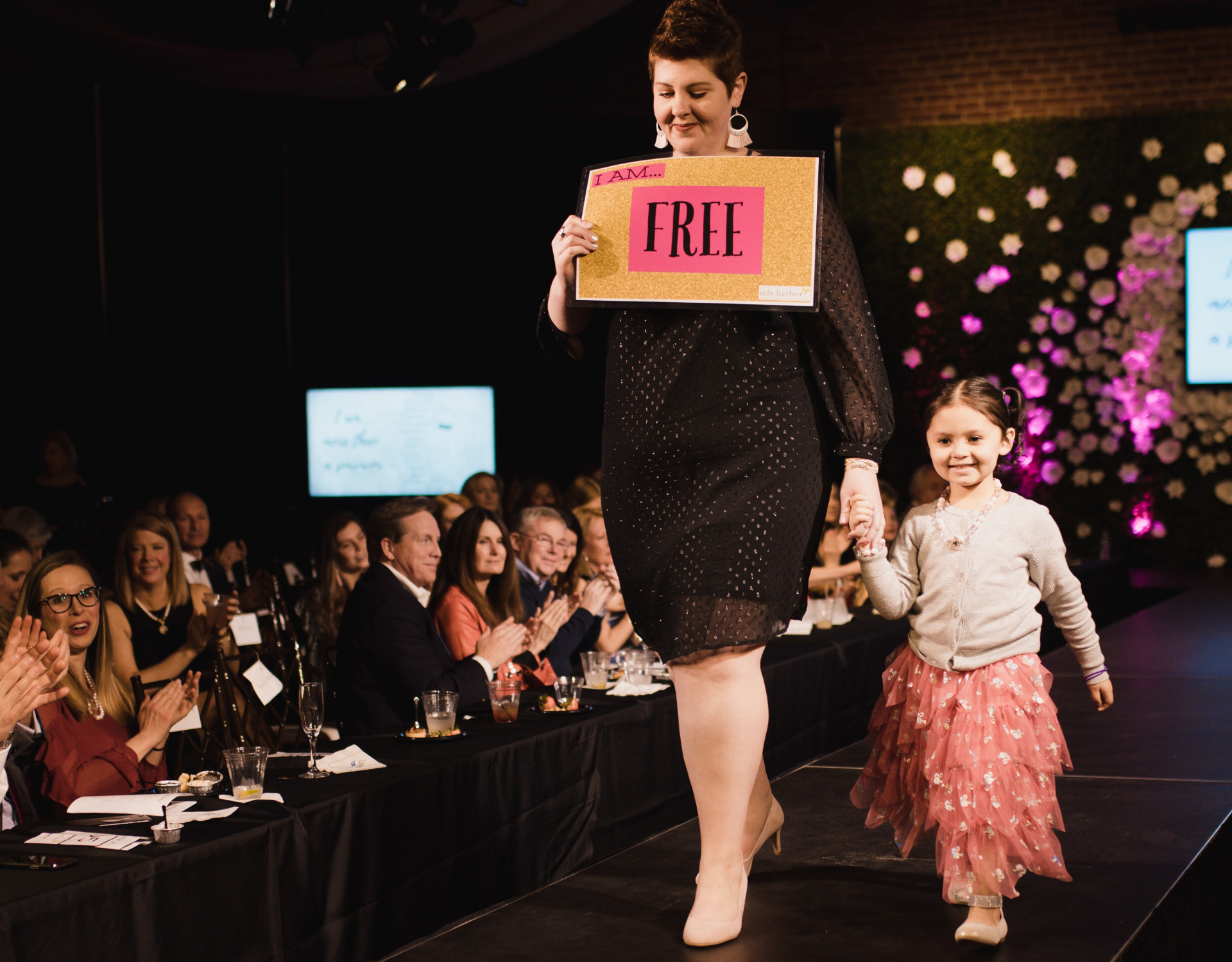by Anna Spatafora, Anderson/Pickens REP Educator
Safe Harbor staff member, Anna Spatafora, moved from serving as a Family Advocate in Safe Harbor’s Anderson Shelter to being Safe Harbor’s REP Educator for Anderson and Pickens Counties. In this blog post, Anna talks about her transition from working with domestic violence survivors in the shelter to working with students in the classroom.
Transitioning from being the Anderson Shelter Family Advocate to the Anderson/Pickens REP Educator was more that just moving offices and changing titles. I started my new role in April. While I felt that I had a vast knowledge of domestic violence from working with clients in the shelter, I never expected to learn so much more from my students. I was prepared for learning the curriculum and how to teach the students, but never thought they would change my outlook on the issue of dating violence.
After being fully trained, I started my first REP classes at TL Hanna High School; it was the first of five that I would be there for with these students. In the first class, we do an activity called “Deal Breakers” where students choose things that they feel are deal breakers in relationships (e.g. cheating, abuse) and we discuss these as a group. One of the first things that came up was any hitting, or physical violence. Most of the class agreed that this was a complete deal breaker and they would not continue to date someone if this happened, until one male student spoke up. He said, “If a girl hits a guy, it’s not that serious, or if the guy hits the girl back because she hit him first, that’s just self defense.” Thankfully, this started a class discussion and gave me a moment to think about how to respond.
I reminded the students that dating violence does not discriminate; anyone can be a victim no matter their race, gender, orientation, background, economic status, or body type. We talked about the Amber and Gary story from MTV’s Teen Mom again, and how Amber was abusive to her boyfriend. I asked the class, “Do you think it was a serious thing to Gary?” They all agreed that Gary probably did have a lot to deal with after the abuse finally ended, and then we discussed the self-defense issue. During this discussion many things came up, like the fact that he could have hit her back, or he should have stuck up for himself, or that he didn’t have to stay with her. This was the perfect way for us to transition into the rest of the information I had for them that day. We talked about the cycle of violence and why many victims stay with their abusers. We also spent a lot of time discussing how violence only breeds more violence. While we were discussing this, I started to see many of them thinking in a different way, and knew that something had clicked.
After class that day, I began thinking about all my past clients and how many of them viewed their abuse the same way the students did, and all the times I had heard a client say, “Well, I did hit him first that time, but it was just because he wouldn’t stop calling me ‘stupid’.” This made me realize how many people still have this same mindset of responding to violence with violence, and furthermore, what even constitutes as violence. Emotional abuse is often not even identified or recognized as a type of violence or abuse.
As my weeks continued on with the TL Hanna students, I hoped that the students’ understanding of healthy relationships and domestic/dating violence would continue to develop. I used our REP curriculum, which includes real-life stories and media references, to hit closer to home for the students. In doing so, I began to see their frustration with society and their desire to be a part of change and progress. Our youth today truly care about the big issues, but they are confused on how to do something to address them or how to help their friends deal with these issues. By the end of our time together, I saw this frustration change to passion and drive.
I believe this is the answer, if we can reach as many students as possible and help them more thoroughly understand what dating/domestic violence is, how it happens, and what to do if it does, we will see the frustration change to passion. My students wanted someone to explain what abuse looks like and how they could help their friends and peers who may find themselves in abusive and controlling relationships. And I believe that this is what most people want, and need, to make a difference. I am so excited to continue my journey with REP and hope that we can continue to help our youth to move from a place of frustration to a sense of passion, moving towards true advocacy and prevention of abuse.




